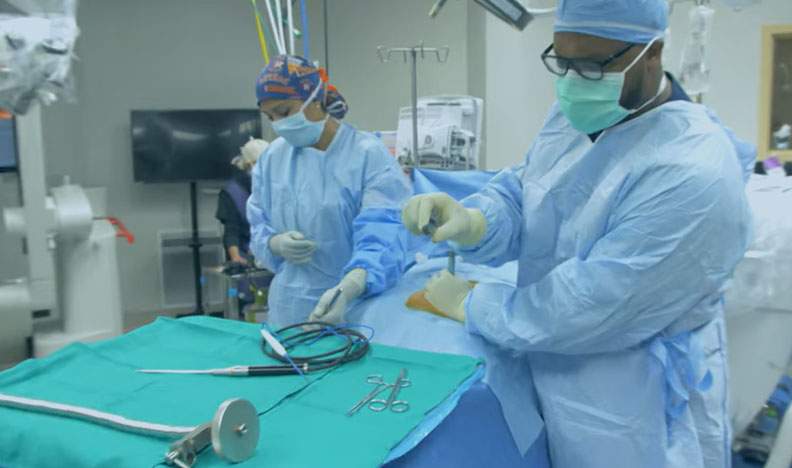In this video Dr. Antonio Webb, an orthopedic spine surgeon and U.S. Air Force veteran, explains the VA’s Community Choice program and how it provides treatment for veterans dealing with neck or back pain. As a veteran and physician, Dr. Webb acknowledges the difficulties of navigating the VA system and offers his services as a civilian doctor.
Through the Community Choice program, veterans can use their benefits to receive specialized care from doctors like Dr. Webb. He encourages those experiencing neck or back pain to visit his website and reach out for more information on scheduling a consultation.



